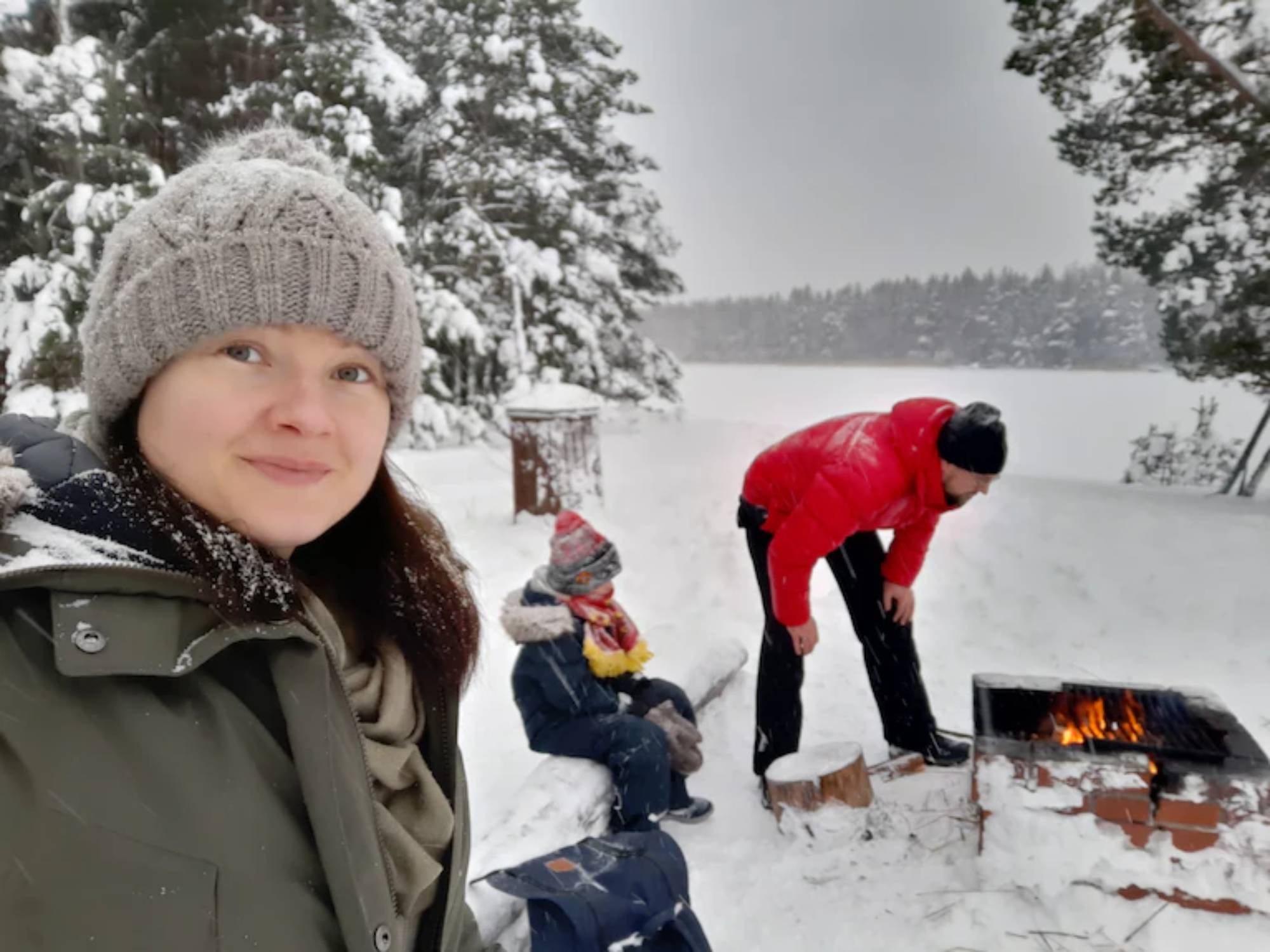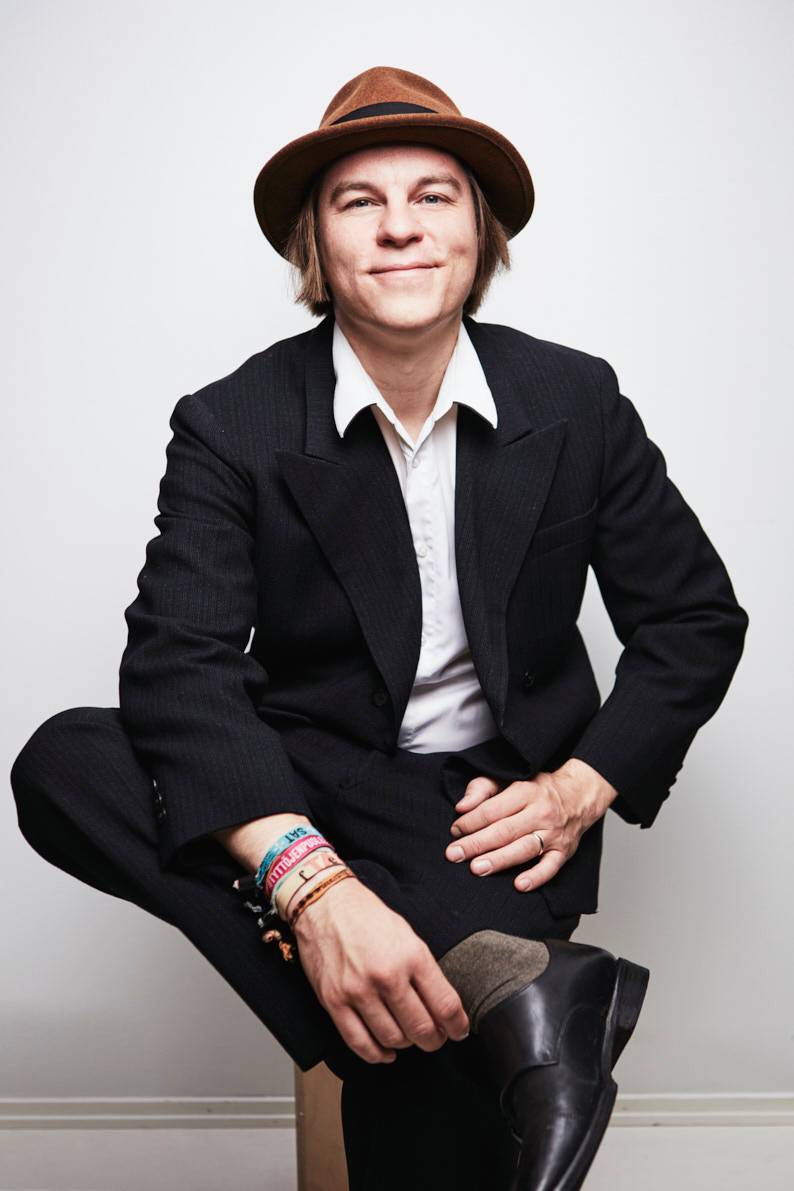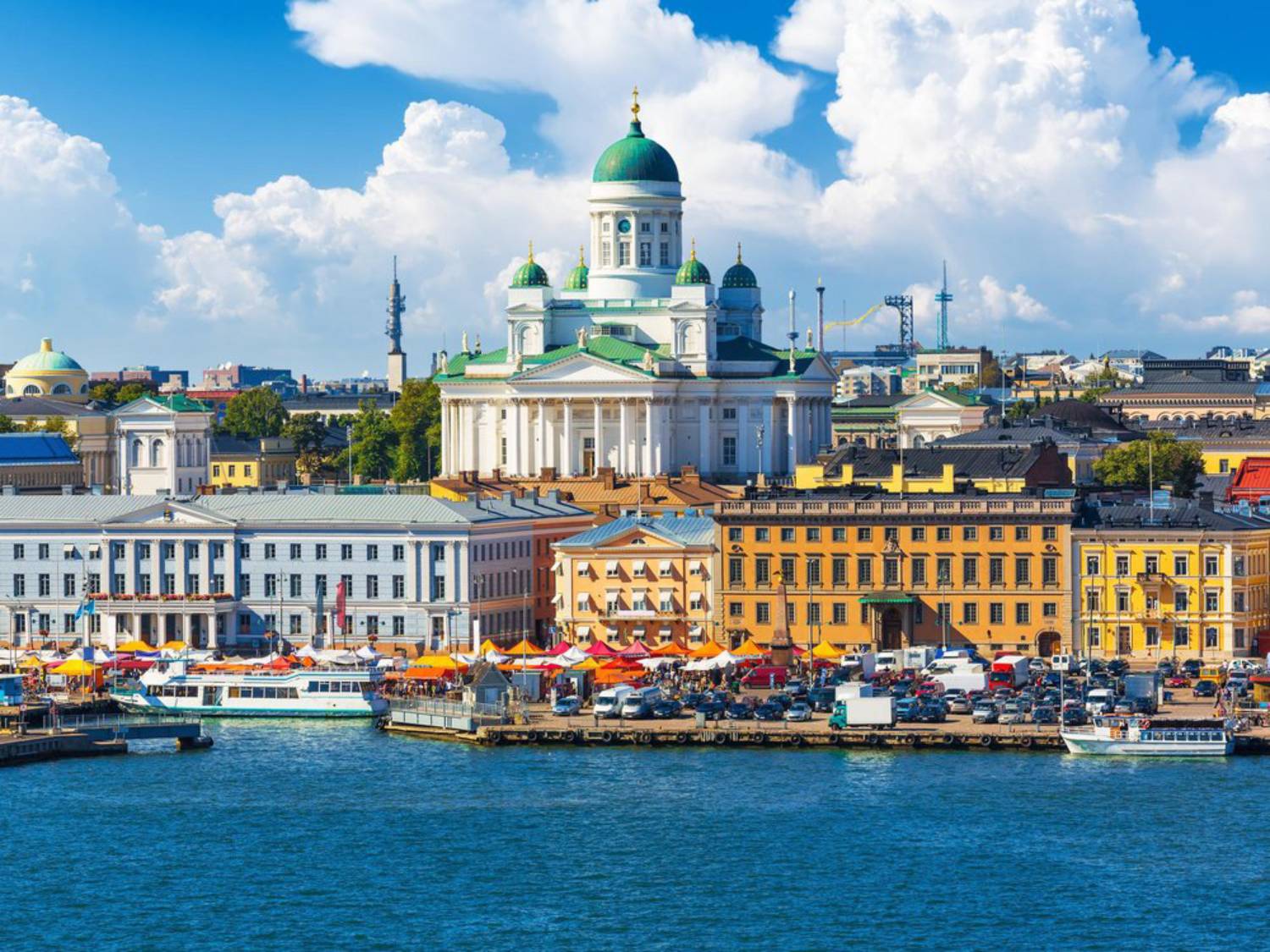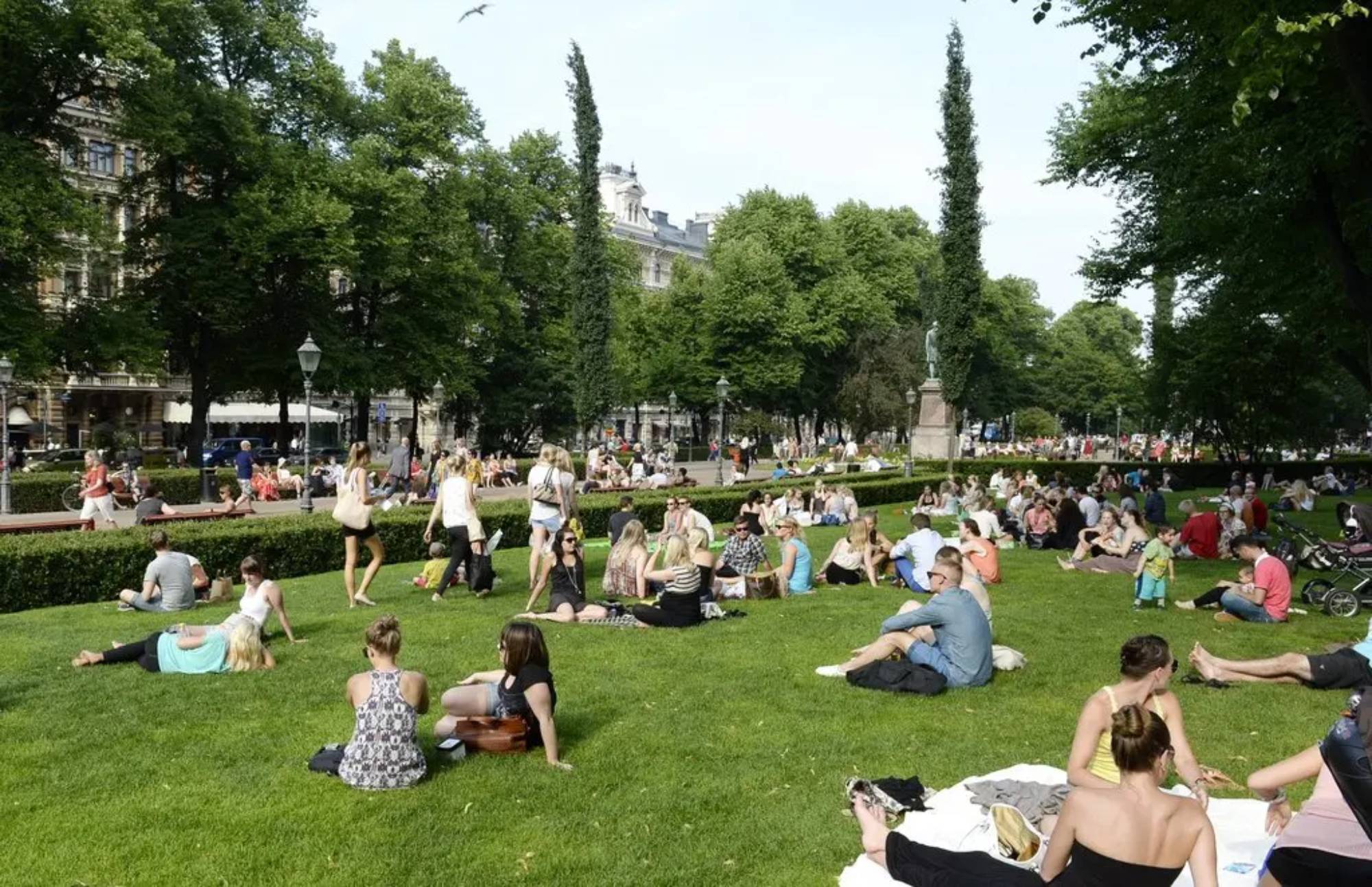Happiest Countries in the World, Switzerland is One of Them
Switzerland is not only about chocolate, watches, and the Alps.
Dream - Since 2012, most humans on Earth have been reminded almost every year that there are many nations much happier than them. This annual joyful notice is known as the World Happiness Report or Laporan Kebahagiaan Dunia.
With the release of the World Happiness Report, published by the United Nations Sustainable Development Solutions Network, the question is not which country will emerge at the top of the rankings, but which country is the happiest?
Finland has been the happiest country in the world for six consecutive years; Denmark and Norway have held the title except for one other (which fell to Switzerland in 2015).
A group of United Nations experts did find that Finland remains the happiest country in the world, according to a report released on Monday, March 20, 2023, in connection with the UN International Day of Happiness.

(Finland has been the happiest country in the world for six consecutive years/Washington Post)
The World Happiness Report ranks the Nordic country first for the sixth consecutive year.
According to the report using data from Gallup, the 10 happiest countries are: Finland, Denmark, Iceland, Israel, the Netherlands, Sweden, Norway, Switzerland, Luxembourg, and New Zealand.
The US ranks 15th on the list.
The World Happiness Report also ranks Indonesia at 84th out of 109 countries on the list of the happiest countries. Indonesia even ranks among the bottom 30 countries on the list.
The ranking is based on the average response of each country to questions such as: If you imagine a ladder with its rungs numbered zero to 10, and zero represents the worst possible life for you and 10 represents the best, on which rung of the ladder would you say you personally feel you stand at this time? (Asking this question to at least 1,000 people in 150 or more countries is an intensive effort requiring resources.)
The country of Finland, with a population of 5.5 million people, ranks first with a Happiness Index score of 7.842.
Explaining why one country is happier than another is uncertain, but the report cites six key factors: per capita GDP, social support, life expectancy, freedom to make life choices, generosity, and corruption levels.
The report uses several factors to assess each country, including physical and mental health, lack of corruption, and effective governance.
"The ultimate goal of politics and ethics must be human well-being," says one of the authors of the report, Jeffrey Sachs, Director of the Center for Sustainable Development at Columbia University.

(Jeffrey Sachs, Director of the Center for Sustainable Development at Columbia University. Author of the World Happiness Report/jeefsachs.org)
"The happiness movement shows that well-being is not a 'soft' and 'vague' idea, but focuses on very important aspects of life: material conditions, mental and physical wealth, personal virtues, and good citizenship," says Sachs.
"We need to turn this wisdom into practical outcomes to achieve more peace, prosperity, trust, civility - and yes, happiness - in our society," he added.
The United Nations first became interested in the imaginary ladder of people's lives 10 years ago, after the prime minister of Bhutan at the time, Jigme Thinley, urged member countries of the organization to better incorporate well-being into measurements of social and economic development. His recommendations inspired the first World Happiness Report, which was released in 2012.
Happiness rankings are a useful counterbalance in a world that tends to take GDP as a proxy for a nation's success, and in the past five years, several governments have launched initiatives dedicated to the well-being of their citizens: the UK appointed a Minister for Loneliness, the United Arab Emirates appointed a Minister of Happiness, and New Zealand reviewed its national budget based on how government spending would affect the well-being of its people.

(In Finland, healthcare services are provided free of charge by the state/Boghit)
The main conclusion from nine years of happiness reports is that wealthier countries are not always happier countries. In the US, "we live with a very fragile social trust and bad vibes and addictions and many other things, and yet many people say 'Don't tax me,' 'Don't tax the rich,'" says Jeffrey Sachs, an economist at Columbia University and editor of the report.
"This is part of our politics which I think is all wrong, and I think that's what puts us far behind countries that are not as rich as the United States but in my view are much more balanced in their lives," he said.
So, what makes Finland the happiest country in the world and how can we all become like them?
***
According to Health News, Finland is a cold northern country.
However, Finland has a strong sauna culture - an activity that is beneficial for heart health, improves mood, and overall well-being.
With over three million saunas in Finland, there are options for private or public spaces to sweat it out. Many Finnish people have a sauna in their homes for daily visits.

(Finnish people have the most saunas in the world to ward off the cold/VisitFinland)
They are usually heated between 70 and 100 degrees Celsius, Finland uses dry heat with humidity between 10% and 20%. Pouring water onto rocks or stones increases humidity and makes you sweat.
After visiting the sauna, some people will jump into a cold lake or roll in the snow. Others just jump into the shower.
In addition, a 2021 survey published by Sitra said that 87% of Finnish people are in harmony with nature and prioritize it.
They use nature to connect with their mental conditions, using it as a time to reset and find peace.
In the survey, 62% of Finnish people said that nature gives them energy to be in nature, and 56% said that nature helps them recover.
In a country filled with lakes and vast forests —and 40 national parks— it makes sense that their relationship with nature is so strong.
Finnish people also get to enjoy nature because they also have more vacation time —about four weeks during the summer holidays.

(Finnish people have four weeks of vacation during the summer to explore nature/VisitFinald)
Furthermore, in the summer months, the sun does not set, which means Finnish people can absorb all that sunlight 24 hours a day.
Another thing, although leaving their community occasionally is enjoyable, Finnish people have a strong trust and admiration for their community. In 2016, the National Economic Research Bureau found that citizens who trust their country are happier.
In 2022, a "lost wallet" experiment, observing the honesty of citizens when someone dropped a wallet in around 16 different cities worldwide. In the capital of Finland, Helsinki, 11 out of 12 wallets were returned to their owners. Having trust in those around you can improve mood and overall appreciation for life.
WHO also released data announcing that Finland has the cleanest air in the world with the lowest air particles.
With a population of 5.5 million and all industrial waste located far away, people do not breathe in toxic smoke - which according to a 2023 JAMA study can cause depression - and not many people create pollution in the first place.
Another advantage of Finland is the concept of “Sisu.”
"Sisu," a unique term in Finland, cannot be directly translated into English, but it means willpower, perseverance, and logical thinking.
This mindset is ingrained in Finland and perhaps that is what continues to make them achieve consecutive victories for the Happiest Country in the World from year to year.
Low crime rates, abundant natural beauty, an emphasis on community and cooperation, universal healthcare, and few people living in poverty, all ultimately contribute to the happiness of the Finnish nation.
***
Marja Hienonen, author of several books, with over three decades of experience as a journalist and editor in her home country, Finland, and holding a doctorate degree in communication, shares her personal experience of living in the happiest country on CNN.

(Marja Hienonen, academic living in Finland, shares her personal experiences/CNN)
“According to the latest World Happiness Report, my country Finland has the happiest people on Earth, a title it has held for six consecutive years.I imagine this news may anger some Americans, some of whom like to boast about the American Dream and portray their country as the greatest in the world,” she writes.
According to her, like other Nordic countries, Finland has well-functioning and democratic institutions that provide its citizens with wide-ranging benefits and security. Citizens trust Finnish institutions, something that certainly cannot be said about the United States at present, which according to some assessments is at risk of losing the democracy that has long been its identity card on the global stage.
Of course, she says, every country has a unique history and has mapped its own path to its current level of national satisfaction — or lack thereof. Finland does not have the deep class differences and economic inequality experienced by some other countries — including the United States.
According to her, the Finnish economic system is not built on the rich and the poor, the Darwinian model of survival of the fittest which actually drives class divisions and conflicts by rewarding winners who seem to often succeed by taking advantage of the less fortunate.
“How does my country's system lead to overall national happiness? Let me use my own experience as an example,” she writes.
“My father was a construction worker and my mother worked in a factory. Thanks to an exemplary education system, I was able to obtain a doctorate degree for free. Both of my daughters have access to one of the best educations in the world — practically free of charge again. As a single mother, I cannot overstate how important it is that I do not have to dig into my own pockets to pay for quality education for them.

(In Finland, I achieved a doctorate degree given for free/Sanako)
“Childcare costs are subsidized for all families in Finland. Before going to school, my daughter could attend a very professional public daycare at a very reasonable cost, which allowed me to work.
“Then there is the issue of healthcare costs — a tremendous financial burden for many American families. One of my daughters has been suffering from chronic skeletal disease since she was young, and medical treatment has been ongoing for over a decade.
“I am grateful to live in a country where the cost of my daughter's treatment is affordable and does not ruin our lives. Most of the expenses are covered by the public healthcare system. In fact, I paid less than U$ 1,000 or Rp 14.7 million for her hospital stay, doctor visits, and 10 special braces that she had to wear for a decade to help correct her spinal curvature. Our high-quality universal healthcare, funded by taxpayers, is without confusing paperwork or large bills borne by patients.

(Healthcare services in Finland are provided for free/Sosiaali- ja terveysministeriö)
“All of this is part of our welfare state, which is famous in the Nordic countries. I realize that “welfare” is a dirty word for many people in the United States. But some studies have shown that the generosity of the welfare state has an incredible positive impact on life satisfaction,” he writes.
He also acknowledges that some people in America say they want less government involvement, no more, and criticize Finland as a socialist “nanny state” where the government talks too much about individual lives. In Finland, they find that the government actually frees businesses to focus on what they do best: business. And it has proven to be beneficial not only for the economy but also for society as a whole.
In the end, according to him, survival at the most basic existential level is the core of happiness, and in some societies like the US, having enough money to live comfortably can be a complicated business. However, beyond that, more money does not always produce happiness, and it may even be the opposite.

(Free education and healthcare make Finland the happiest country in the world/CBSNews)
“In countries like mine, where there is no extreme wealth or poverty like in the US, the opportunity to be disappointed with your fate in life is greatly reduced. And those who are unfortunate enough to fall below the poverty line in Finland know that there is a welfare network and public assistance to help them get back on their feet.
“There is no Finnish equivalent of the American Dream, promising wealth after a lifetime of hard work. Instead, here in the Nordic countries, we realize that the secret to happiness is found in a kind of egalitarianism and trust in our institutions. This leads to a cohesive society - and happiness - that cannot be bought with money,” he concludes.
***
Meanwhile, Frank Martela, PhD, a philosopher and psychology researcher who studies the fundamentals of happiness, a lecturer at Aalto University in Finland, and the author of the book “A Wonderful Life: Insights on Finding a Meaningful Existence,” explains why Finland can be so happy.

(Frank Martela, PhD, a philosopher and psychology researcher who studies the fundamentals of happiness/Frank Pastela)
“As a Finnish philosopher and psychology researcher who studies the fundamentals of happiness, I am often asked: What is it that makes people in Finland so satisfied with their lives?,” he says.
According to him, to maintain a high quality of life, there are three things that Finnish people never do:
“First, we do not compare ourselves to our neighbors,” he says..
According to him, there is a famous saying from a Finnish poet: “Kell' onni on, se onnen kätkeköön.” Roughly translated, it means: Do not compare or flaunt your happiness.
Finns really pay attention to this, especially when it comes to material things and openly displaying wealth.
“I once met one of the richest people in Finland. He was pushing a toddler in a stroller to the tram station. He could have bought an expensive car or hired a driver, but he chose public transportation,” he says.
That's success in Finland: just like everyone else.

(That's success in Finland: just like everyone else/Smithsonian).
“Second, we do not neglect the benefits of nature,” he says..
According to a 2021 survey, 87% of Finns feel that nature is important to them because it provides peace of mind, energy, and relaxation.
In Finland, employees are entitled to summer vacations for four weeks. Many of them use that time to go to the countryside and immerse themselves in nature. The fewer facilities, even to the point of no electricity or running water at home, the better.
Many Finnish cities are also built densely, which means many people have access to nature right outside their doors. He himself lives next to Helsinki Central Park, where he often takes walks.

(Finns do not neglect the presence of nature/CNBC)
So this is one of the secrets to Finnish happiness: Spending time in nature enhances vitality, well-being, and provides a sense of personal growth. Find ways to incorporate greenery into your life,
“Third, we do not break the circle of trust in the community,” he says..
According to him, research shows that the higher the level of trust in a country, the happier its citizens are.
The “lost wallet” experiment in 2022 tested the honesty of citizens by dropping 192 wallets in 16 cities around the world. In Helsinki, the capital of Finland, 11 out of 12 wallets were returned to their owners.
Finns tend to trust and value honesty. “If you forget your laptop in the library or lose your phone on the train, you can be sure you will get it back,” he says.

(In Finland, losing a phone or wallet is likely to be returned/New York Times)
“Children also often come home by public bus from school and play outside unsupervised,” he adds.
With the conception of a welfare state, Finland imposes high taxes on the wealthy. But this allows the country to provide free education from basic to higher education to all citizens. It also provides free healthcare services and provides benefits for the unemployed. No wonder for six consecutive years Finland has become the happiest country in the world. When will Indonesia catch up? (eha)
Source: CBS News, New York Times, Atlantic, Health News, CNN, CNBC, Washington Post, Forbes,
Cobain For You Page (FYP) Yang kamu suka ada di sini,
lihat isinya
Switzerland is not only about chocolate, watches, and the Alps.
Allah sends angels to heaven to build a palace prepared for those who perform Lailatul Qadar prayer.
Wish Titiek Soeharto a happy birthday, Prabowo's Instagram catches netizens' attention.
Sri Mulyani met with several passengers who turned out to be migrant workers. She also had a conversation with them.
In marital relations, it is important to pay attention to each other. Both from the wife's side and the husband's side.
For the first time in history, Indonesia exports ready-to-eat food for Indonesian Hajj pilgrims in Saudi Arabia.
A video of a content creator parodying BLACKPINK members at a warung has made netizens laugh!
After talking for a while, he and his husband's mistress suddenly hugged each other and cried.
The best time to pay zakat fitrah is after dawn before Eid prayer, but it is allowed to delay it.
In various posts, she often wears a mask but her clothes and body shape resemble that of a woman.
Instead, he responded rudely by asking the journalist to ask Bima's father directly.
The sharia bank, established since 2004, also launched Syariah Card, which is a credit card with the application of sharia principles.